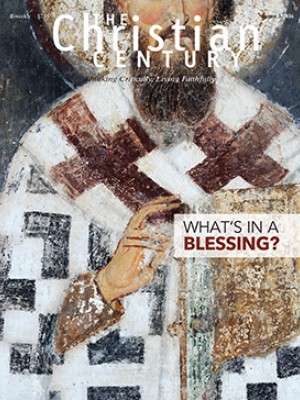Is Brexit cause or effect of rise in hate?
(The Christian Science Monitor) When it succeeded, Britain’s campaign to leave the European Union, called Brexit, shook up a deeply unpopular political order. Its anti-immigration platform appears to resonate with many voters. But a rise in reports of hate crimes may lend merit to fears that the referendum’s outcome could have ugly effects for Britain’s minorities.
A prayer event planned by the British Bangladeshi Cultural Academy in celebration of Eid al-Fitr, the end of Ramadan, was canceled in Southampton, England, after the BBCA discovered that activists from a far-right anti-immigrant group would converge on the city for a rally.
Read our latest issue or browse back issues.
The National Police Chiefs’ Council said that in the week immediately following the Brexit vote on June 23, a U.K. national online hotline had received 331 reports of hate crime incidents, compared to a weekly average of 63 reports.
The NPCC noted that the reports accounted only for those made through one channel and that the “extensive focus” on the issue had likely encouraged more people than usual to report. “We also cannot determine how many of the reports are linked to the referendum,” it wrote.
Brian Levin, director of the Center for the Study of Hate and Extremism at California State University, San Bernardino, said that “catalytic events” like the vote to leave the European Union are sometimes followed by a temporary spike in hate crimes.
“What I think we’ve seen in England with the Brexit vote is that there have been significant increases [in reports] that can’t be adequately explained but for that catalytic event,” he says. But he cautions against attributing the spike to the referendum alone. “These events oftentimes are tied to more long-standing conflicts, anxieties, and fears that can be exploited, like a gusty wind can spread a wildfire on a dry summer day.”
Anti-immigrant and anti-Muslim feeling in Britain may have inspired an increase in incidents dating back to before the Brexit campaign. One watchdog’s report, based on data from 15 police departments, found a 326 percent increase in anti-Muslim incidents in 2015, although the Brexit campaign did not officially begin until April 2016.
Most of the post-Brexit complaints catalogued by the police chiefs’ council appear to stem from verbal altercations rather than physical violence. Several laws in the United Kingdom allow for the prosecution of hate speech, including one 1986 law that prohibits “threatening, abusive, or insulting” written materials intended to “stir up racial hatred.”
In the aftermath of the referendum, the NPCC said, “migrants are reporting verbal abuse, negative social media commentary including xenophobic language, antimigrant leafleting, and, in very limited numbers, physical assaults.”
“When a nation feels like its policies aren’t serving them, it’s valid that they hold a vote,” Levin said. “The problem is that the vote also became about immigration and the loss of some kind of national character which sometimes hit the third rail of bigotry.”
A report from the organization Tell MAMA (Measuring Anti-Muslim Attacks) recorded 437 incidents of anti-Muslim hatred in 2015, including assault and verbal abuse, up from 146 the year before. Women were more likely than men to be attacked, with white men often identified as the perpetrators.
Tell MAMA recorded a spike in incidents against Muslims after the November 13 terrorist attacks in Paris. There were 82 such acts in the three weeks following the deadly bombings and shootings, compared with 25 in the same period before the attacks.
“We are in a period where, post Brexit, some feel that their hatred and prejudice has been legitimized, and we are in a period where terrorism and extremism fuels anti-Muslim hatred,” the organization said in a statement.
The report was dedicated to Jo Cox, a British member of Parliament who was murdered on June 16. A Labour politician, Cox campaigned tirelessly for Syrian refugees, supported religious diversity, and had been due to launch the new report, according to U.K. media.
British faith leaders published a letter in the Times newspaper on July 1 confronting the fear and mistrust that have followed the Brexit vote. The letter was signed by Ephraim Mirvis, chief rabbi of the United Hebrew Congregations of the Commonwealth; Justin Welby, archbishop of Canterbury; Vincent Nichols, archbishop of Westminster; and Ali Raza Rizvi, president of the Muslim organization Majlis Ulama-e-Shia (Europe).
“For all that lies outside of our personal control, every person has the power to conquer their own instinct to apportion blame to others for perceived injustice,” the leaders wrote. “Today we call upon every citizen of our great country to recognize personal accountability for their every action, rather than avoiding that responsibility by looking for scapegoats, and to challenge racial and communal prejudice wherever it is found.”
This article was edited, including the addition of material from Religion News Service in the final paragraphs, on July 25, 2016.





